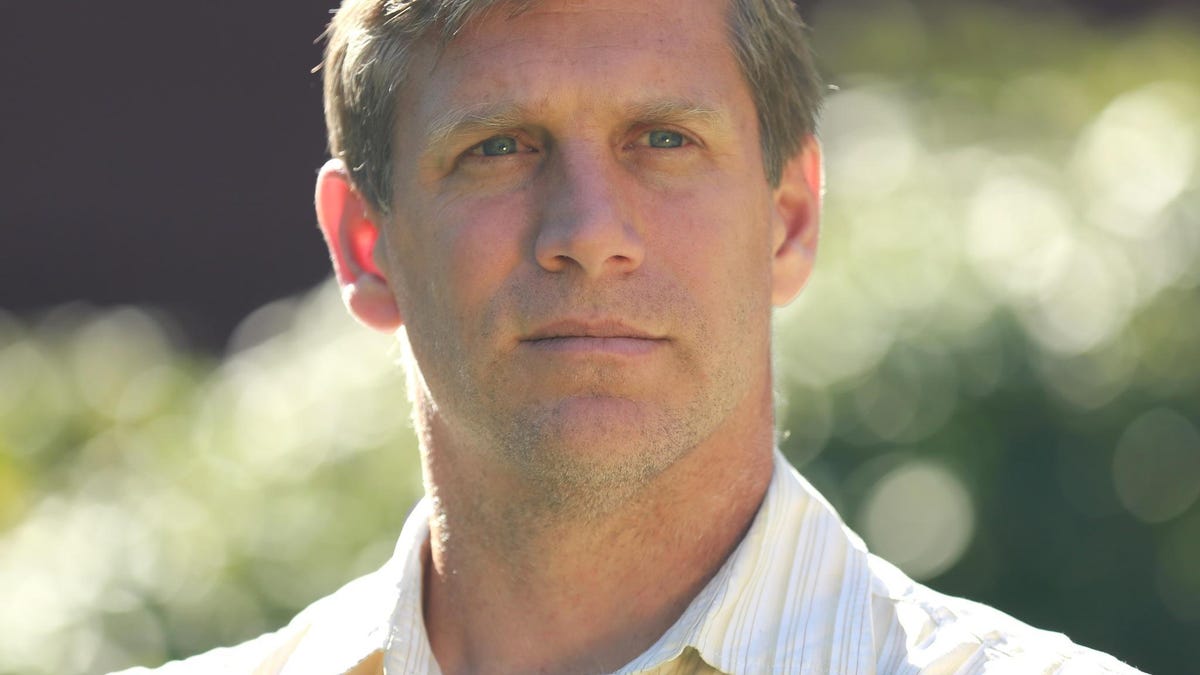Presidential candidate suggests microchips for Syrian refugees
Transhumanist Party candidate Zoltan Istvan says implanting technology in those fleeing unrest in the Middle East could allow us to aid the humanitarian effort and protect our borders from terrorists.
The question of allowing Syrian refugees in to the United States has created a political firestorm in the wake of the terrorist attacks in Paris and one Presidential candidate proposes a novel, high-tech solution, but it's also likely to make plenty of Americans uncomfortable.
Transhumanist Party candidate Zoltan Istvan suggests that small microchips could be implanted under the skin of Syrian refugees as part of the process of admitting them into the United States or other countries around the world.
"The procedure takes a minute and is harmless," Istvan, who recently had a microchip implanted in his own hand to kick off his campaign bus tour, told CNET in an email. "The chip is the size of a grain of rice and could go in the hand and be useful for more than just tracking purposes."
In an earlier interview with the Broward-Palm Beach New Times, Istvan said chipping refugees could be one way to track them and determine if any might be plotting acts of violence and also monitor who is "contributing to the system -- whether they are working, paying taxes or causing strife."
Istvan clarified to CNET that he doesn't advocate that refugees be chipped for life.
"Maybe for a duration of three years, and then they'd be given a choice to have it removed by the government if they were deemed safe to the public."
As I pointed out in my own in-depth interview with Istvan, a lot of his technology-based solutions for problems like balancing humanitarian concerns with national security are likely to creep out the large portion of the American populace that tends to regard "high" technology with suspicion. And nothing raises tech paranoia and the specter of Big Brother-type surveillance and control more than any kind of mandatory implanted technology.
"Maybe Big Brother shouldn't be looked at really negatively," Istvan told the Florida paper. "Maybe Big Brother isn't the bad guy -- if he protects us from ISIS."
Edward Snowden is certainly among those who might disagree with that point.
Also, you'd think that people who are willing to kill others and themselves for a cause wouldn't flinch at the idea of digging a microchip out from beneath their skin, but Istvan told me that technology could address that side issue too.
"Some chips can already detect tissue and temperature, and take samples, so it could register blood (being still in the body) or the right blood type. So if something changed, it might set off an alarm for people or programs monitoring them."
Aside from potentially tracking refugees, Istvan believes chip implants will become common among regular citizens relatively soon.
"Many, many millions of people will embrace chip implants for a variety of reasons in the next decade, especially the ability to wave your hand in a Starbucks at a chip reader to quickly pay instead of digging out a credit card from a bulky wallet or purse."
What do you think? Can technology like microchip implants protect us from terrorism and the tyranny of bulky bags and billfolds? Discuss in the comments below or tweet @Crave and @EricCMack.


